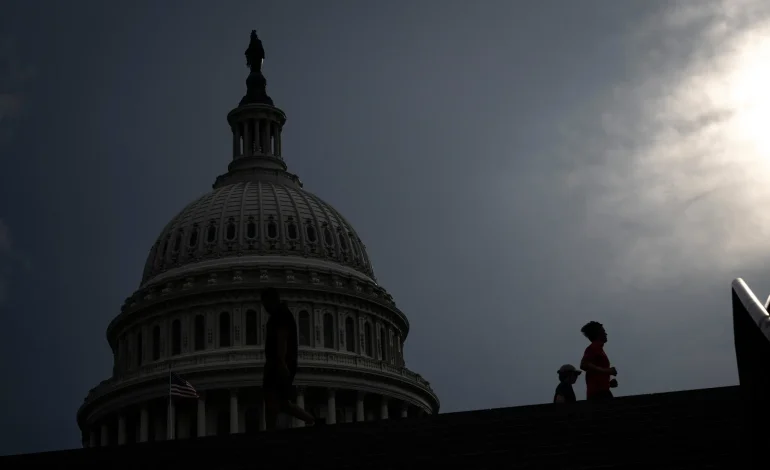A newly passed Republican tax bill has ignited concern among budget analysts and economists for its projected long-term impact on the federal deficit and fiscal stability, the New York Times reports.
Approved by Senate Republicans on Tuesday using the reconciliation process, the legislation is estimated to add at least $3.3 trillion to the national debt over the next decade, making it one of the most expensive bills passed in recent decades.
At the heart of the legislation is the permanent extension of the 2017 tax cuts, which originally reduced individual income tax rates and expanded the standard deduction. Those provisions were initially set to expire after 2025. By making them permanent, the new bill reduces the federal government’s primary revenue stream over the long term.
Critics warn the fiscal effects could be substantial. Independent estimates from groups like the Committee for a Responsible Federal Budget place the full cost of the bill, including interest payments and likely future extensions of temporary provisions, at closer to $5.3 trillion.
Jessica Riedl, a senior fellow at the conservative Manhattan Institute, called the bill “likely the most expensive piece of legislation since the 1960s,” warning that it compounds existing deficits and accelerates federal borrowing at a time when US debt levels are already historically high.
The bill also includes new tax cuts, such as provisions to eliminate taxes on tips and overtime pay through 2028 — proposals that align with former President Donald Trump’s campaign pledges. Analysts note that even temporary cuts are often extended by future Congresses, further increasing their long-term fiscal impact.
The reconciliation process allowed Senate Republicans to bypass the 60-vote filibuster threshold and pass the bill on a party-line vote. While this procedure traditionally limits legislation from adding to the long-term deficit, Republicans used an accounting method that assumed the cost of making the 2017 tax cuts permanent was zero — a claim budget experts have widely disputed.
Economists have expressed concern not only about the size of the projected deficit increase but also about the signal it sends to financial markets.
“It’s not just the numbers, it’s the precedent,” said Kent Smetters of the University of Pennsylvania’s Wharton School. “If I’m a bond investor, this is a little depressing.”
So far, global investors have continued to purchase US Treasury bonds, a foundational asset in the world’s financial system. But experts caution that persistent and growing deficits could eventually push interest rates higher, increasing borrowing costs across the economy and potentially eroding confidence in US fiscal management.
In the House of Representatives, some Republican lawmakers have voiced reservations about the bill’s cost, calling for revisions before final passage. Any attempt to offset the tax cuts would likely require deeper cuts to federal spending, including social safety net programs — a move that presents its own political challenges.
Looking ahead, the bill’s passage comes at a time when Social Security’s trust fund is projected to be depleted by 2033, raising questions about how the federal government will manage competing budget priorities amid declining revenue.
“This bill makes that conversation significantly harder,” said Zach Moller, director of the economic program at Third Way, a center-left think tank.










The latest news in your social feeds
Subscribe to our social media platforms to stay tuned